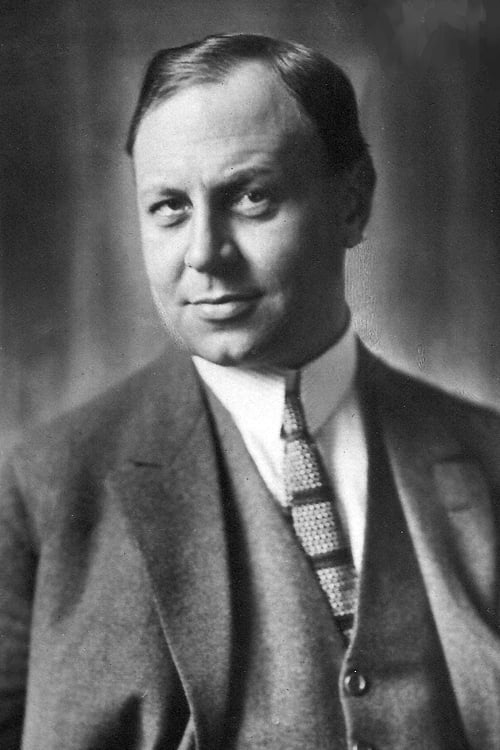
Emil Jannings
Nacimiento : 1884-07-23, Rorschach, Switzerland
Muerte : 1950-01-02
Historia
Emil Jannings fue un actor suizo, cuyo verdadero nombre era Theodor Friedrich Emil Janenz. Se nacionalizó alemán.
Estudió primero en Zúrich y luego en Görlitz. En esta ciudad inicia su carrera teatral, a los 18 años. Recorre Europa central en el seno de diversas compañías ambulantes, y en 1906 es contratado por Max Reinhardt para trabajar en el Deutsches Theater de Berlín. En 1914 se incorporó al mundo del cine, trabajando también con Max Reinhardt como productor. Participó en películas de Ernst Lubitsch y F.W. Murnau, en las que desplegó su gran talento, uno de los mayores que el cine mudo viera. En 1926 se traslada a Hollywood, donde tiene el honor de ser el primer actor que consiguió un Óscar como mejor actor en la primera edición de estos premios en 1929, por sus magníficas interpretaciones en dos películas mudas: La última orden, de Josef von Sternberg y El destino de la carne de Victor Fleming.
La llegada del cine sonoro le perjudicó, debido a su pésimo acento inglés, su diálogo en Betrayal de Lewis Milestone fue eliminado al resultar ininteligible y decidió regresar a Alemania en 1930, en donde llevará a cabo una de sus interpretaciones más recordadas, la del inocente maestro engatusado por la cantante que interpreta Marlene Dietrich en El ángel azul, de Josef von Sternberg. Su carrera artística en el cine sonoro no fue muy brillante, pero gozaba de una enorme popularidad en Alemania y, debido a su afinidad con el régimen nazi (otros dicen que solamente por el deseo de seguir filmando), permaneció en Alemania después de 1933, donde consiguió llegar a la dirección de la famosa productora cinematográfica UFA.
Tras la derrota de los nazis en la Segunda Guerra Mundial, y a pesar que rogó sin éxito a las autoridades aliadas de ocupación de Alemania que le permitieran trabajar nuevamente, abandona el mundo del cine y se retira a Austria, en donde muere de cáncer hepático en 1950.
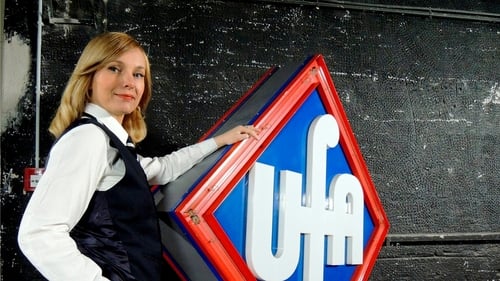
Self - Actor (archive footage)
The intricate history of UFA, a film production company founded in 1917 that has survived the Weimar Republic, the Nazi regime, the Adenauer era and the many and tumultuous events of contemporary Germany, and has always been the epicenter of the German film industry.
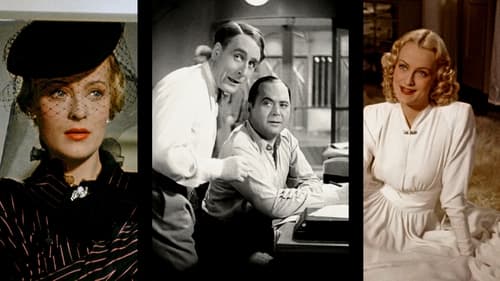
Self - Actor (archive footage)
El periodista y crítico de cine Rüdiger Suchsland examina el cine alemán desde 1933, año de la llegada de los nazis al poder, hasta 1945, año de la caída del Tercer Reich. (Secuela de «De Caligari a Hitler», 2015.)

Himself (archive footage)
Among the pieces featured in Fragments are the final reel of John Ford's The Village Blacksmith (1922) and a glimpse at Emil Jannings in The Way of All Flesh (1927), the only Oscar®-winning performance in a lost film. Fragments also features clips from such lost films as Cleopatra (1917), starring Theda Bara; The Miracle Man (1919), with Lon Chaney; He Comes Up Smiling (1918), starring Douglas Fairbanks; an early lost sound film, Gold Diggers of Broadway (1929), filmed in early Technicolor, and the only color footage of silent star Clara Bow, Red Hair (1928). The program is rounded out with interviews of film preservationists involved in identifying and restoring these films. Also featured is a new interview with Diana Serra Cary, best known as "Baby Peggy", one of the major American child stars of the silent era, who discusses one of the featured fragments, Darling of New York (1923).

Hotelportier (archive footage)
This movie was featured on the DVD release of Der letzte Mann in 2004 in Germany.

Himself / Mephisto (archive footage)
Documental sobre la realización del film de F.W. Murnau "Fausto" (1926).
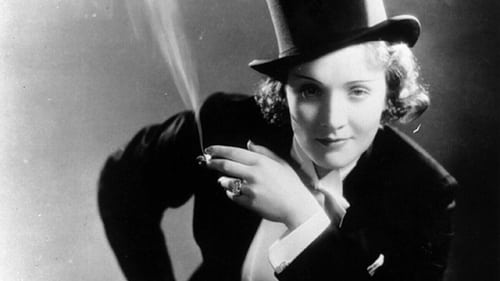
(archive footage)
Este perspicaz documental presenta algunas de las actrices más importantes y bellas que adornan la pantalla grande. Muestra cómo la industria del cine cambió su descripción de la representación del sexo y las actrices del sexo desde la era del cine mudo hasta el presente. Las escenas clásicas se muestran desde la película muda, True Heart Susie, protagonizada por Lillian Gish, hasta Love Me Tonight (1932), mezcla de sexo y sofisticación, protagonizada por Jeanette MacDonald (antes de Nelson Eddy) y Elizabeth Taylor en A Place in the Sun (1951), además de mucho, mucho más.

Eberhard Belling

Friedrich Hoffmann, Seniorchef

Producer
German chancellor Otto von Bismarck promises the dying emperor Wilhelm I. to be loyal to his grandson. But the gap between young Kaiser Wilhelm II. and old Bismarck is rapidly widening. It soon appears that an era is coming to an end.

Fürst Otto von Bismarck
German chancellor Otto von Bismarck promises the dying emperor Wilhelm I. to be loyal to his grandson. But the gap between young Kaiser Wilhelm II. and old Bismarck is rapidly widening. It soon appears that an era is coming to an end.
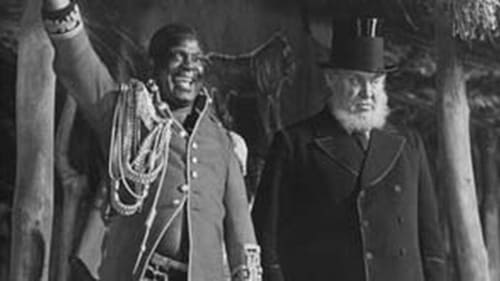
Ohm (Paul)Krüger
Ohm Krüger (English: Uncle Krüger) is a 1941 German biographical film directed by Hans Steinhoff and starring Emil Jannings, Lucie Höflich and Werner Hinz. The film depicts the life of the South African politician Paul Kruger and his eventual defeat by the British during the Boer War. It was the first film to be awarded the 'Film of the Nation' award. It was re-released in 1944

Producer
Ohm Krüger (English: Uncle Krüger) is a 1941 German biographical film directed by Hans Steinhoff and starring Emil Jannings, Lucie Höflich and Werner Hinz. The film depicts the life of the South African politician Paul Kruger and his eventual defeat by the British during the Boer War. It was the first film to be awarded the 'Film of the Nation' award. It was re-released in 1944

Self (archive footage)
This 1940 presentation features highlights of earlier (1928 onward) Oscar ceremonies including Shirley Temple and Walt Disney, plus acceptance speeches for films released in 1939 with recipients and presenters including Vivien Leigh, Judy Garland, Hattie McDaniel, Fay Bainter, Mickey Rooney, Thomas Mitchell, Sinclair Lewis, and more, with host Bob Hope.

Dr. Robert Koch
Country Dr. Robert Koch is desperate: a tuberculosis epidemic is decimating the children in his district and no one is able to do anything about it. Every fourth child is already sick and the parents must helplessly watch as their young ones die. Now Koch is undertaking to find the cause of the tuberculosis --- something he has already been working on for years --- which has been causing this plague of illness. His work is made more difficult by envy; for example, that of his teacher, who was wounded defending his honor. But his greatest obstacle is the famous Berliner scientist and Reichstag deputy, Privy Councilor Rudolf Virchow: He is extraordinarily skeptical of Koch's theory, that the cause for tuberculosis is a bacteria.

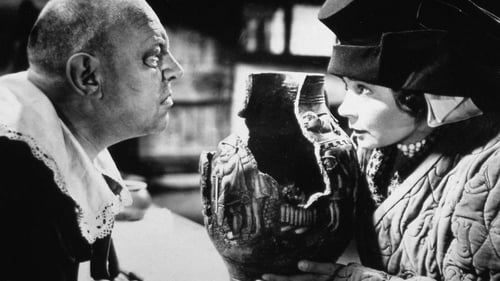
Adam
The man who broke the jug, the judge, is trying a case who determine who broke the jug. Long before the evidence becomes conclusive against the suspects, it becomes apparent that the blustering and bullying - and naive - village judge is the guilty one.

Director
The man who broke the jug, the judge, is trying a case who determine who broke the jug. Long before the evidence becomes conclusive against the suspects, it becomes apparent that the blustering and bullying - and naive - village judge is the guilty one.

Matthias Clausen
Der Herrscher (The Sovereign) was based on Before Sunset, a play by Gerhart Hauptmann. The great Emil Jannings stars as Mathias Clausen, a self-made businessman who is forced to do a great deal of soul-searching when his wife unexpectedly dies. Determining to start life anew, he falls in love with his secretary Inken (Marianne Hoppe) and impulsively takes a vacation to Italy. Clausen's selfish grown children, not wishing to share their father's affections -- nor his money -- with his new wife-to-be, go to court demanding that Clausen be declared mentally incompetent. Upon finding this out, Clausen flies into a rage, leaving the audience to wonder whether or not he really as gone off his trolley. Der Herrscher was directed by Veit Harlan, more famous (or notorious) for his viciously anti-Semitic Jud Suess (1940).

Prof. Niemeyer, gen. Traumulus
This film is a fascinating showcase for Emil Janning's theatrical play. He's a gentle school teacher who believes in his boys and is easily fooled about all things, while the other town officials want him dismissed. Curiously it's very hard to see what the film is exactly aiming for. Disaster strikes and the lax prof proves to be too far removed of the real problems of the world, on the other hand his enemies are shown in the most unsympathetic, satirical way denouncing the militaristic, bourgeois ideology of the Kaiserreich.

König Friedrich Wilhelm I.
The story of the stormy relationship between King Friedrich Wilhelm and his son, who later became known as King Frederick the Great of Prussia.

Peter Petersen
Film by Wendhausen.
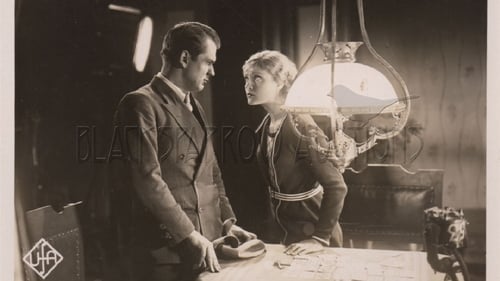
Gustav Bumke
Two inspiration sources appear clearly: contemporary American gangster movies and Alfred Döblin’s novel Berlin Alexanderplatz (1929).

Albert Winkelmann
Also known as Darling of the Gods, this was Emil Jannings' second talkie appearance. Jannings stars as famed operatic singer Albert Winkelmann, who is greeted with cheers, applause and romantic propositions whenever he performs in his native Vienna. But when he embarks on a tour of South America, tragedy strikes. The sweltering climate causes Winkelmann to lose his voice on stage, a disaster met with hoots and cat-calls. Dispirited he returns to Europe, where he soon learns that no one is aware of what happened in South America. Intending to retire so as not to be exposed to further humiliation, Winkelmann is goaded back on stage -- where, miraculously, his gorgeous voice returns.
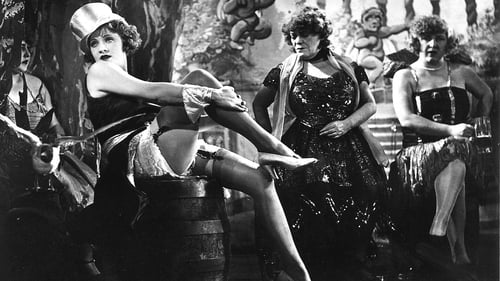
Immanuel Rath
Adaptación cinematográfica de la novela "Profesor Unrath" de Heinrich Mann. Narra la tragedia de un severo profesor que una noche va a "El Ángel Azul", un cabaret de mala fama, para llevarse de allí a sus alumnos, que acuden al local seducidos por los encantos de la cantante Lola-Lola (Dietrich). Sin embargo, el profesor Rath, un solterón de 50 años, acaba cayendo en las redes de la cabaretera. A partir de entonces, su vida será un descenso a los infiernos de la humillación y de la degradación moral.
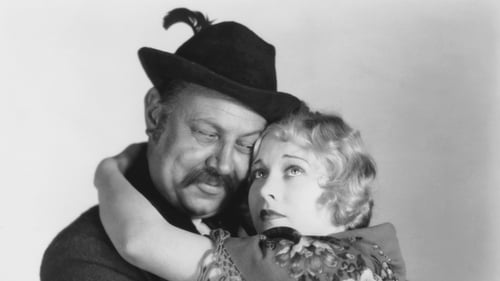
Poldi Moser
Vroni, una campesina suiza, vive un hermoso romance con Andre Frey. Por diversas razones, deciden mantener su affaire en secreto. Tras un tiempo separados, Andre viaja a Suiza para estar con ella, pero descubre que Vroni ha sido obligada a casarse con Poldi Moser, un rico y poderoso alcalde.
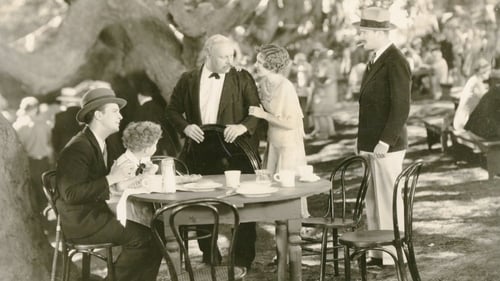
Wilhelm Spengler
A married restaurant owner is persuaded to become a bootlegger by a beautiful young girl. When he starts making money at it, she steals it, then runs off with another man. His wife finds out what happened. Complications ensue.

German documentary about Hollywood
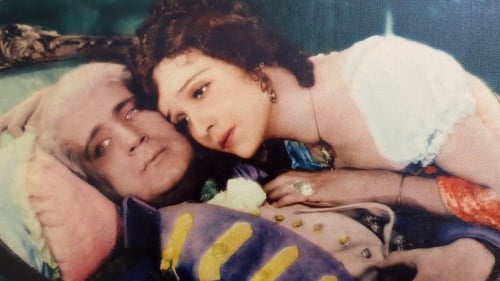
Czar Paul I
El zar Pablo I de Rusia sólo confía en el conde Pahlen; éste le defiende, pero los actos terroríficos ejecutados por el zar le hacen pensar la posibilidad de apartarlo del trono. Stefan, un guardia humillado por el zar se une a la conspiración. (FILMAFFINITY)
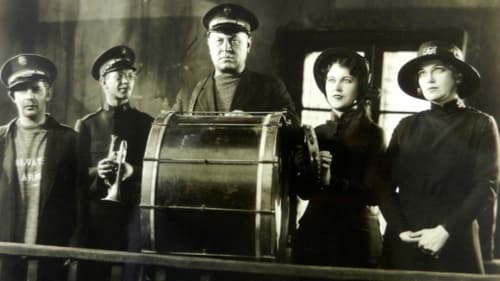
Basher Bill
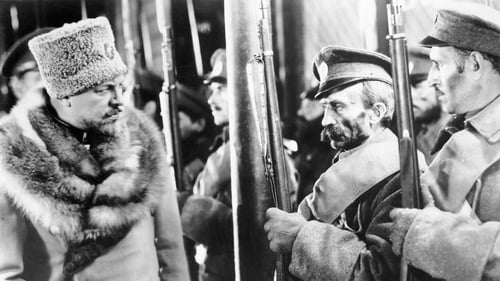
Gen. Dolgorucki / Grand Duke Sergius Alexander
La Última Orden se inspira en una historia supuestamente real, que se atribuye a Ernst Lubitsch. Su protagonista es un aristócrata zarista arruinado que, tras la Revolución Soviética, acaba recalando en Hollywood, donde trabaja como extra en una película que narra los convulsos días de la Revolucíón de 1917, y en la que encarna a un personaje cuya vida es idéntica a la suya. Esta extraña e insólita situación hace que afloren a su memoria los recuerdos del pasado. (FILMAFFINITY)

August Shilling
Un empleado de banco feliz pierde su identidad después de un robo y luego se presume muerto.
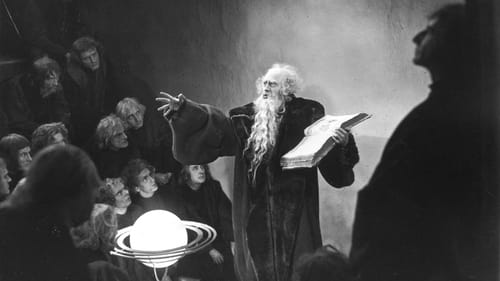
Mephisto
Relata la historia de un célebre pensador que después de buscar sin descanso la esencia del conocimiento y la verdad oculta de las cosas, es tentado por el diablo y vende su alma.
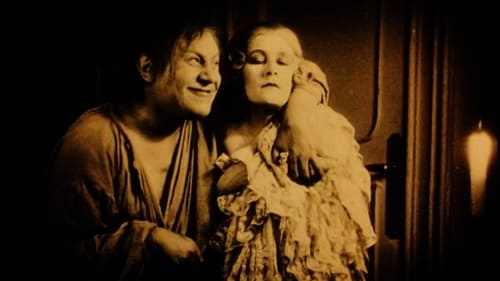
Tartüff
Fábula moral basada en la famosa comedia de Moliere sobre la hipocresía de un hombre que quiere adueñarse de una gran fortuna.

Boss Huller
Un acróbata deja su familia por una joven, dedicándose a realizar ejercicios de acrobacia con ella en el trapecio. Un día, un famoso trapecista les invita a ambos a unirse a su show de Berlín.
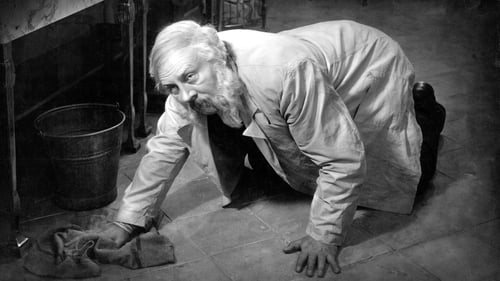
Hotelportier [Hotel Doorman]
Un portero de un lujoso hotel, es bruscamente degradado a mozo de los lavabos. Privado de su antiguo trabajo y del uniforme que le identifica, intenta ocultar su nueva condición, pero su vida se desintegra lentamente.

Ehemann
A wife, bored by her overweight slob of a husband, gives in to the temptation of a slickly seductive poet.

Harun al Raschid
Cuenta la historia de un joven escritor que acepta un anuncio para escribir historias en torno a las figuras que se exponen en un gabinete de estatuas de cera exhibido en una feria. La hija del dueño, muy pronto, queda atraída por el joven empleado...

Nerone
"The Roman Banquet, the golden glories, the unrivaled luxuries, the wine, the dance, the song, the beautiful women, the sumptuous splendors that taxed a barbaric world for a night of feasting and revel-- Re-created for your entertainment in the most colossal drama produced", reads an ad in the Daily Argus of New York. Unione Cinematografica Italiana's lavish production of the oft-told tale stars Emil Jannings as Nero.

Himself
The only surviving excerpt of a documentary on film production in Weimar Germany, featuring the different personalities of several famous directors of the era at work on the set including Fritz Lang, Robert Wiene, and E.A. Dupont.

S. I. Rupp
Rupp (Jannings) is a former butcher, made rich in the meat packing industry as a result of the reversal of fortunes brought on by WWI. He is crude, uncouth and uneducated. His son, Fred, is the apple of his father's eye and is an auto enthusiast. The widowed Rupp falls in love with a former aristocrat, Helen, now down on her luck and pawning her last heirloom. He proposes marriage and she accepts in order to save her ailing mother who needs a monetary influx to avoid death. Her former boyfriend, Platen, warns Helen against Rupp's intentions - he and Rupp are enemies, Rupp having caused his being fired for protecting a chorus girl against Rupp's unwanted advances. Meanwhile, Graf, a shyster, arranges purchase of a near bankrupt auto manufacturing firm, Phoenix, to Rupp's great advantage with practically no monetary recognition to Graf, who swears revenge. Rupp comes upon his son begging Helen not to marry his father but to return to Platen.

Ombrade

Tsar Peter the Great
Biopic sobre el zar Pedro el Grande
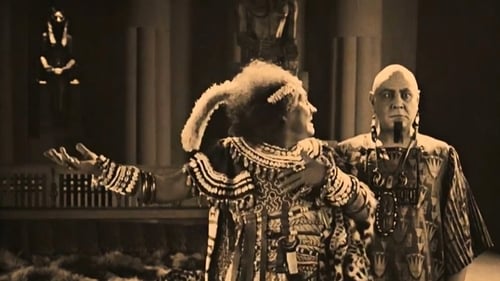
Pharao Amenes
La devoción por una bella esclava provoca una guerra entre el faraón Amenes y el rey de Etiopía. Pero ella ama a Ramphis. Fue la película más espectacular que se había producido hasta entonces en Europa y utilizaba una impresionante reconstrucción de las pirámides, los templos, los desiertos e incluso el Nilo en los estudios alemanes Ufa.
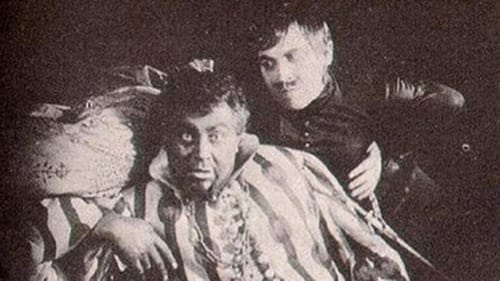
Othello
Even without the benefit of sound, the 1922 German adaptation of Othello seems more operatic than Shakespearean. This may be due to the casting of Emil Jannings, to whom restraint and subtlety were strangers. Werner Krauss, of Cabinet of Dr. Caligari fame, is on hand as the duplicitous Iago. Appearing as the unfortunate Desdemona is Lea Von Lenkeffy, better known as Lya de Putti. Produced on an elaborate scale, Othello may not be true to the letter of Shakespeare, but is undeniably a smorgasbord of visual delights.

Die Ratten was produced by actress and singer Grete Ly. Her company, Grete Ly-Film, made five films between 1919 and 1921. Die Ratten, which is based on the play of the same name by Gerhart Hauptmann, was the last one. Hauptmann, one of the most important promoters of literary naturalism, had received the Nobel Prize for Literature in 1912.
The screen adaptation of his play is beautifully photographed in a realistic style by Karl Freund, one of best German cameraman of that time who also worked with directors such as Lang, Murnau, Dreyer, Dupont and Ruttmann. Moreover, the cast of Die Ratten also acts in a very naturalistic way, far from the affected expressionistic style. Die Ratten was made on a modest budget, but the collaboration of an excellent team produced a film that was ahead of its time.

Danton
At the height of Reign of Terror Maximilien Robespierre orchestrates the trial and execution of several of his fellow leading French revolutionaries including Georges Danton.
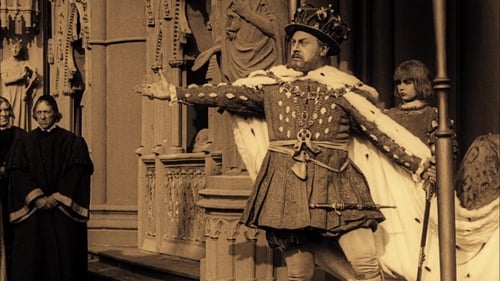
Henry VIII, King of England
Suntuosa recreación histórica que fue calificada como 'la película más grande de todos los tiempos'. El Enrique VIII robusto, brutal y cruel de Emil Jannings contrasta con la inocencia de la Ana Bolena de Henny Porten. Dos arquitectos dirigieron la construcción de las réplicas de la Torre de Londres, el Castillo de Windsor y la Abadía de Westminster.

Robert Herne
An alien from the planet Algol gives a man a device that creates enough energy to power the entire world.

Lorenz Ferleitner
Lorenz Ferleitner has worked his way up from a poor but gifted farm boy to a recognized master builder. When a new cathedral is to be built, he is given the honor of carrying out the task. He would like to commission the unknown young painter Fritz Rasmussen to decorate the dome. The director of the art academy, Professor Marquardt, however, wants to employ his untalented nephew for the painting work. A bitter conflict unfolds.

Peter Xaver
En algún lugar del sur de Baviera, Xaver quiere casarse con Gretel, pero el padre de ésta, Kohlhiesel, quiere que su hija mayor, Liesel, se case primero, como mandaba la tradición en ese lugar. El problema es que nadie quiere casarse con Liesel, porque es demasiado brusca. Xaver sugiere que primero se casará con Liesel y luego se deshará de ella, para más tarde volver a casarse con Gretel. (Eddie Constanti)

Arthur Streckmann
An adaptation of the Gerhart Hauptmann play of the same name. A young farmer's daughter is used and abused by the men in her life.
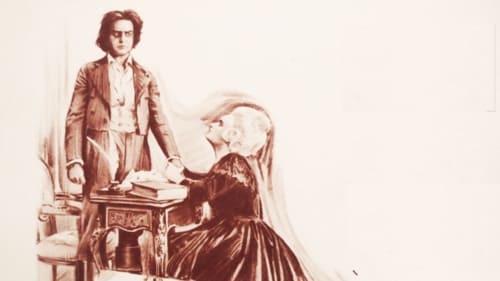
Ludwig XV.
Cuenta la historia de Madame DuBarry, quien de humilde origen, llegó a alcanzar el puesto de favorita del rey Luis XV, quien la hizo condesa al casarla con un noble de la Corte, así como los hechos que llevaron a la Revolución Francesa.

Tomasso

Vaco Juan Riberda
An enslaved girl, Leila, is bought by Vaco Juan Riberda as a gift for his friend, Dr. Jan van Zuylen. van Zuylen is outraged, and refuses. Years later, van Zuylen meets Riberda and Leila again, and finds that they have married. Leila and van Zylen acquaint themselves and fall in love.
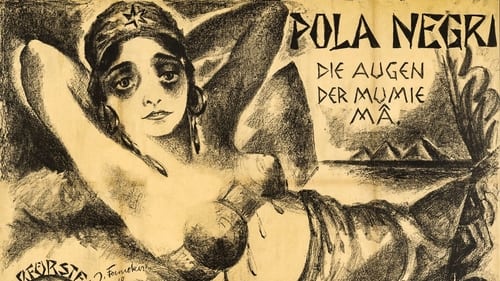
Radu
Egyptians Radu and Ma milk British tourists out of their money by offering phony tours of a mummy's tomb-- Radu has the girl lend her eyes to the "mummy" from inside an empty sarcophagus. When adventurer Wendland comes to visit the tomb, Ma is rescued and falls in love with him, leaving Radu in the dust. Needless to say, her former employer / captor follows them abroad in order to exact his revenge.

James Fraenkel/John Smith

James Fraenkel

Quabbe - der Gaoler
Das Fidele Gefängnis es un divertido sainete, una alegre comedia, una feliz ópera bufa, en la cual se puede uno encontrar a esos personajes tan caros para el director teutón en no menos reconocibles situaciones de enredos amorosos y confusos todos ellos, a los cuales recurriría en su magnífica carrera, a pesar incluso de haber desarrollado buena parte de ésta en tierras salvajes de más allá del Atlántico.

Alfredo, a clown
The circus dancer Lulu is a thoroughly liberal being. Although she loves her former savior, the clown Alfredo, she begins a relationship with the noble Henri von Reithofen. Henri kills himself ruined by the horrendous expenses for Lulu. She however is fishing for the next rich patron, the much older Baron Waldheim. His son knows Lulu and warns his father that she will also hurt him. Waldheim succumbs to Lulus's insinuations and punishes his son.

Segetoff
Directed by Ernst Lubitsch. Lubitsch plays a book shop employee who falls in love with Jannings' daughter.

An extremely jealous artist slips into a monkey costume and kills all those men who come too close to his wife, another artist.

Göttlingk
A stonemason who killed his landlord faces hardship trying to reintegrate into society after being released from prison.

ihr Mann, der Fabrikant
a silent movie by Robert Wiene

A silent movie by Robert Wiene

a silent movie by Robert Wiene
























